Jake Livermore: Hull midfielder says testing positive for cocaine saved career
- Published
Jake Livermore: Failing drugs test saved my Hull City career
Jake Livermore says his positive test for cocaine was the "get out of jail free card" he needed to start to come to terms with the death of his son.
The 26-year-old Hull midfielder failed a drugs test in May 2015, almost a year after his newborn son Jake Junior died.
The Football Association decided not to ban him because of "the unique nature of circumstances" involved.
"It was a young human being who got lost in circumstances and didn't know how to react," he told Football Focus.
Livermore said he "almost felt relieved" at being caught.
"I put my hands behind my head and laid back in the manager's office," recalled the former Tottenham player. "He looked at me, saying this could be serious, this could be two years or four years banned. I didn't care."
Hull finished the 2013-14 Premier League season in 16th place, a year after winning promotion from the Championship. They were about to play Arsenal in the FA Cup final. Livermore's partner was also expecting their first son.

Arsenal's victory in the 2014 FA Cup final secured their first trophy in nine years. The Gunners came from two goals down to win 3-2 in extra time
"It should have been the best weekend of my life," Livermore said in an interview with his former Spurs team-mate Jermaine Jenas, to be broadcast on BBC One from 12:00 BST on Saturday.
"It's what kids dream of. We were on a high that season, we'd already got safe and really we overachieved. What happened after, we weren't really expecting.
"The day after the final, my missus went into labour and from then it all sort of spiralled out of control.
"To lose a son in a scenario which should have been under control - and was under control at one point, external - makes it all harder to deal with.
"It should have been a glorious and happy time for everyone. It was tragic and very difficult to stomach. That is one place I wouldn't want anyone to be."
Livermore said the tragedy was even harder to deal with because it came at the end of the season, when he did not have the regular contact with the club that might have proved hugely beneficial.
"It's difficult," he said. "With your usual day-to-day life at the club, people can pick up on your behaviour, they'll know what's happened. But everyone I would normally turn to - my mum, my dad, my partner, my grandparents, whoever it may be - they were all affected like I was."
Livermore said he felt he needed to "be that rock for everyone else".
He added: "For the vast majority of time, I thought I did that relatively well. But you almost lie to yourself, tell yourself you're strong and you can get through."
Livermore was notified he had failed a drugs test towards the end of the following season, on 13 May 2015. It related to a urine sample given after a Premier League match against Crystal Palace on 25 April 2015.
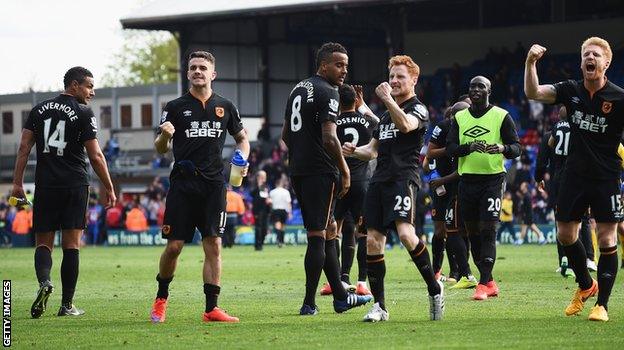
Hull won 2-0 at Crystal Palace on the day Livermore was tested - it was their first win in six games but the club would still go down
"I was obviously nervous and it was starting to hit home that people were going to realise, but something needed to be done and sometimes God works in mysterious ways," Livermore said. "It was my get out of jail free card.
"My career didn't even come in to it. Football took the back seat. I was worried about how it would affect those around me... my mum, dad, nan, brother sister, nephew, manager. The drugs were irrelevant, they weren't the problem. I needed people to understand that it wasn't about a jumped-up footballer."
Livermore said he was glad he was found out.
"At least people knew the mental state I was in needed addressing," he said. "It was something a lot deeper that I needed to get off my chest. But whether you're too strong to talk about it or not strong enough, it didn't come out."
Steve Bruce, who was manager of Hull at the time, said he felt he let Livermore down by not realising he needed help.
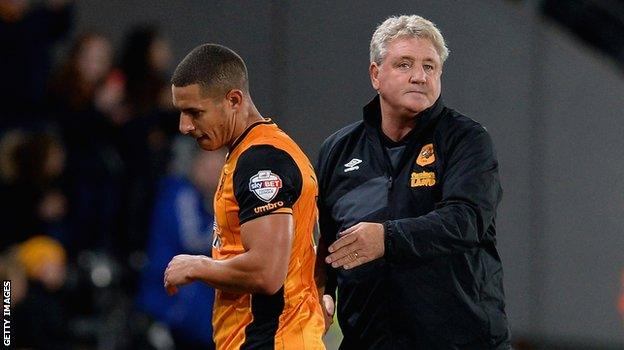
Livermore made his return for Hull in a League Cup match at home to Swansea in September 2015
"He was fantastic," said Livermore. "On top of all the pressure of being a football manager, you have 25 players, kids, men to look after. Being one of his senior ones, so to speak, if I tell him I'm OK, then I should be OK.
"It's only once it's happened that you realise who is there and who it would be beneficial to speak with.
"The FA and Professional Footballers' Association, once it all came out, have been nothing but supportive. That's something I would urge any young player with troubles to do... to go and talk to those people.
"The chairman of Hull, Assem Allam, was fantastic. He was very worried for my welfare. Then I started to get support from those close to me. My dad was a rock for me. A few close friends were also very, very close in that time."
Livermore was temporarily suspended following his positive test, but the FA decided he would not be banned. He returned to the Hull side in September 2015 and helped them win promotion from the Championship last season.
"When I got back to my team-mates, there weren't any words to be said," said Livermore. "It was more just, 'Give us a cuddle'. There couldn't have been any words more fitting.
"Walking onto the pitch when making my comeback was up there with one of the best football moments of my life.
"This club is a very special place. The fans were fantastic. Not just football fans, people you bump into at petrol stations with words of encouragement. Little things like that can give human beings a lift.
"I'm thankful we could return to the Premier League at the first attempt and I'm really enjoying my football. I think we all are here. I wasn't able to play with a smile on my face for a little while. Now it's come back."
Football Focus is on BBC One at 12:00 BST on Saturday, 27 August.
- Published15 May 2015
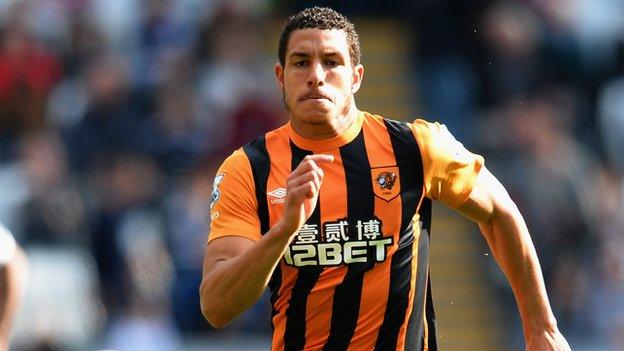
- Published11 September 2015
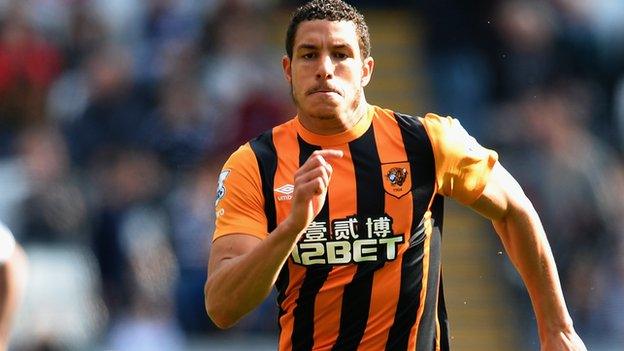
- Published24 August 2016
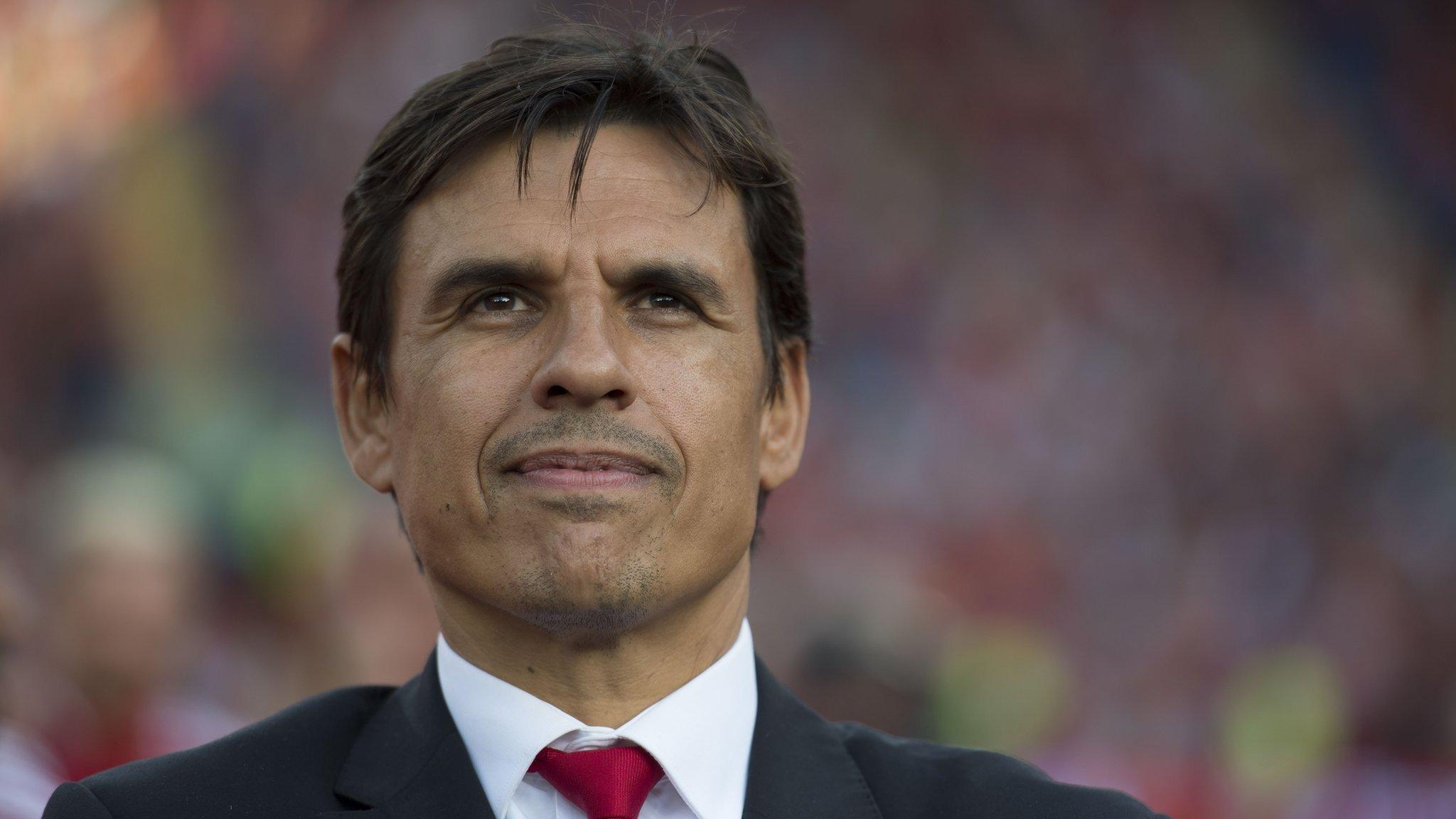
- Published14 January 2018
- Published7 June 2019
